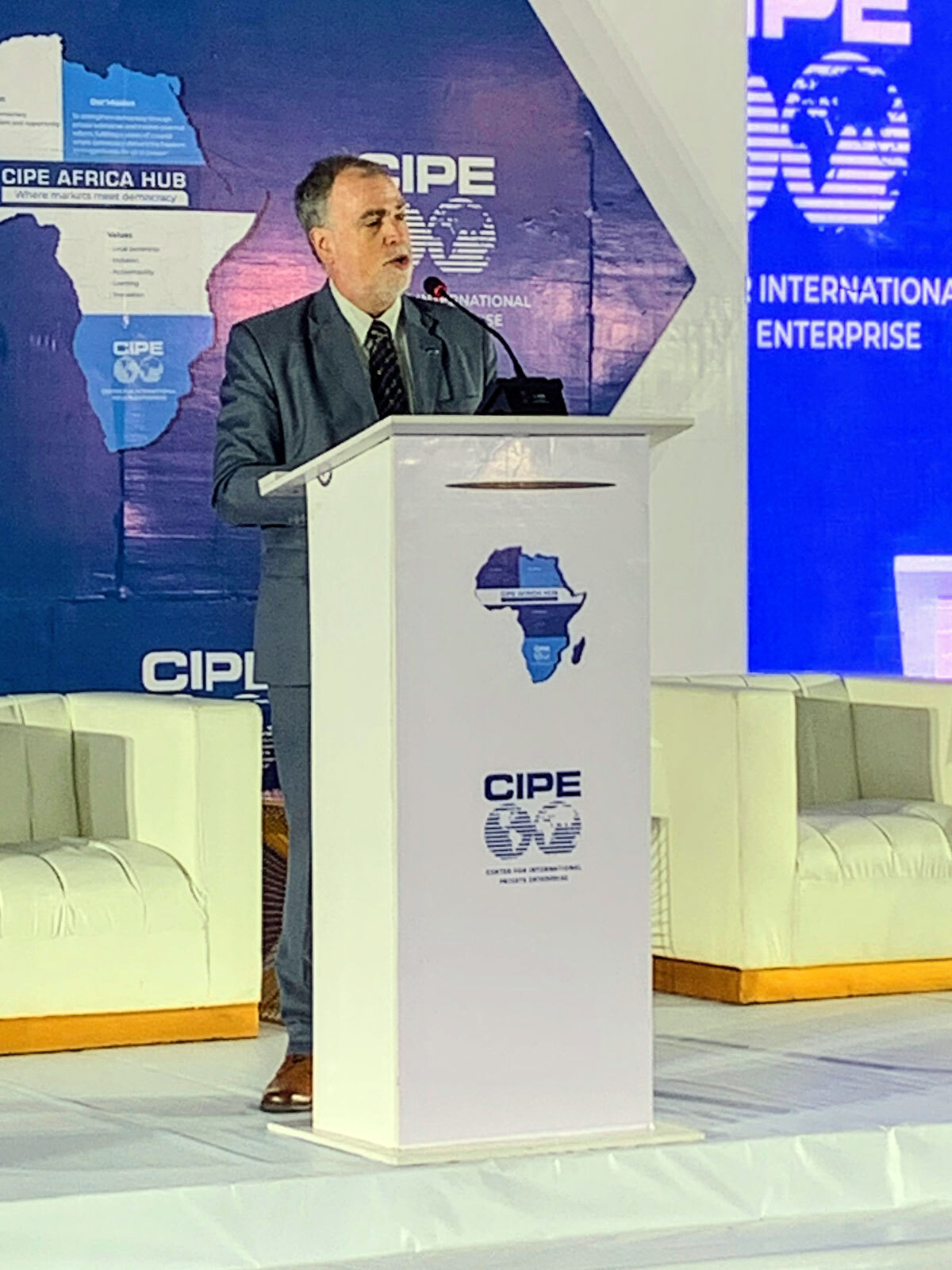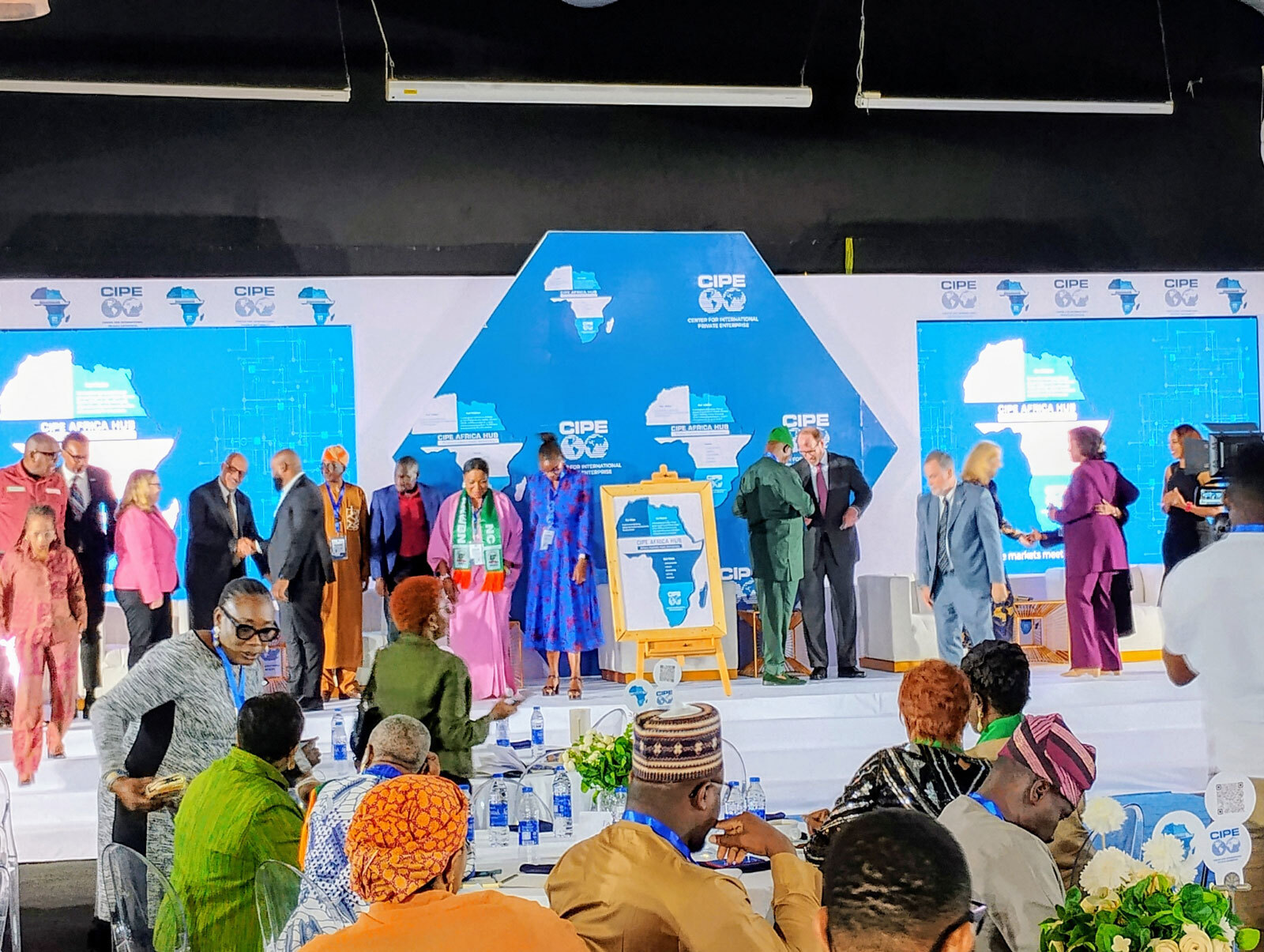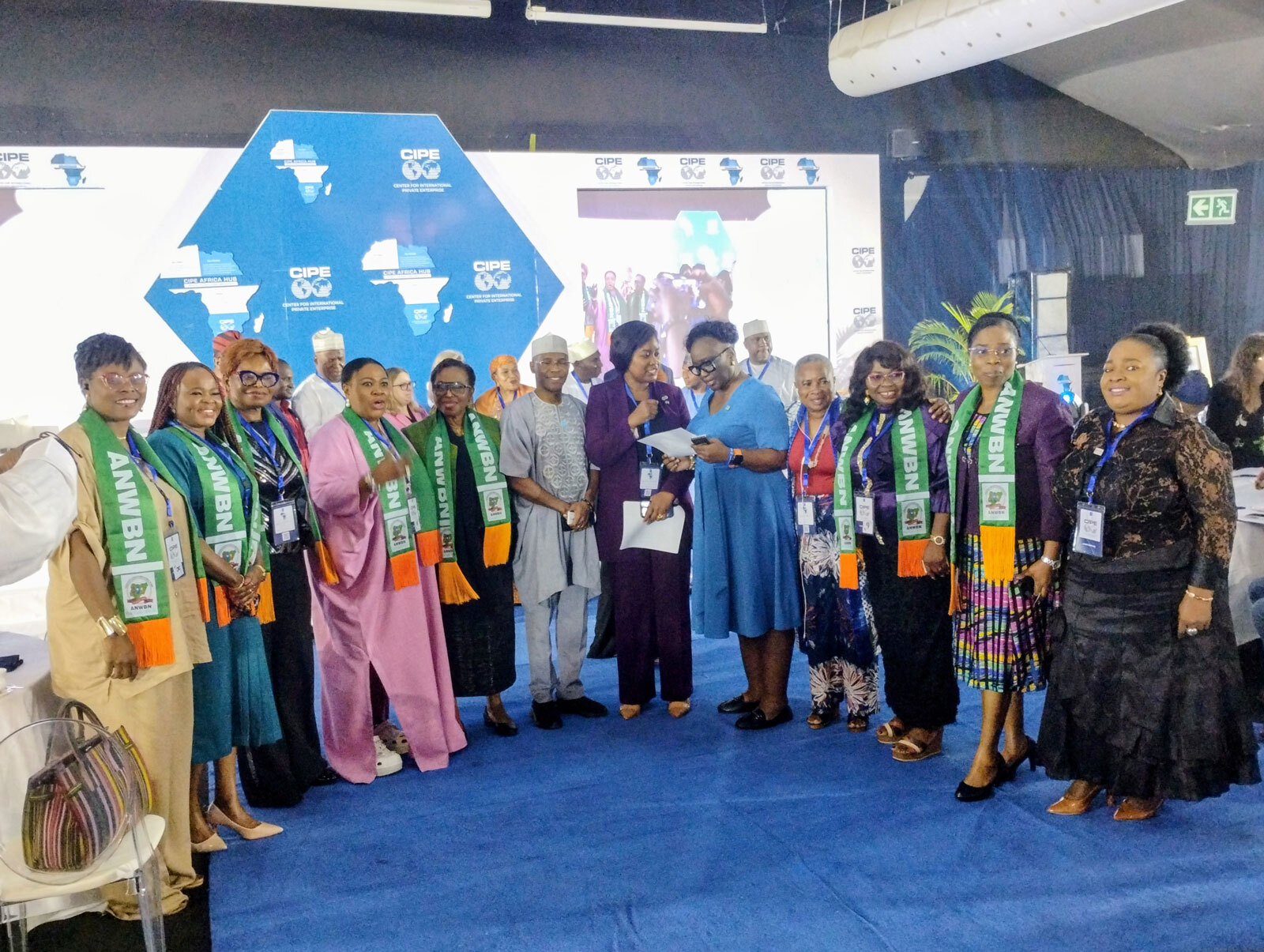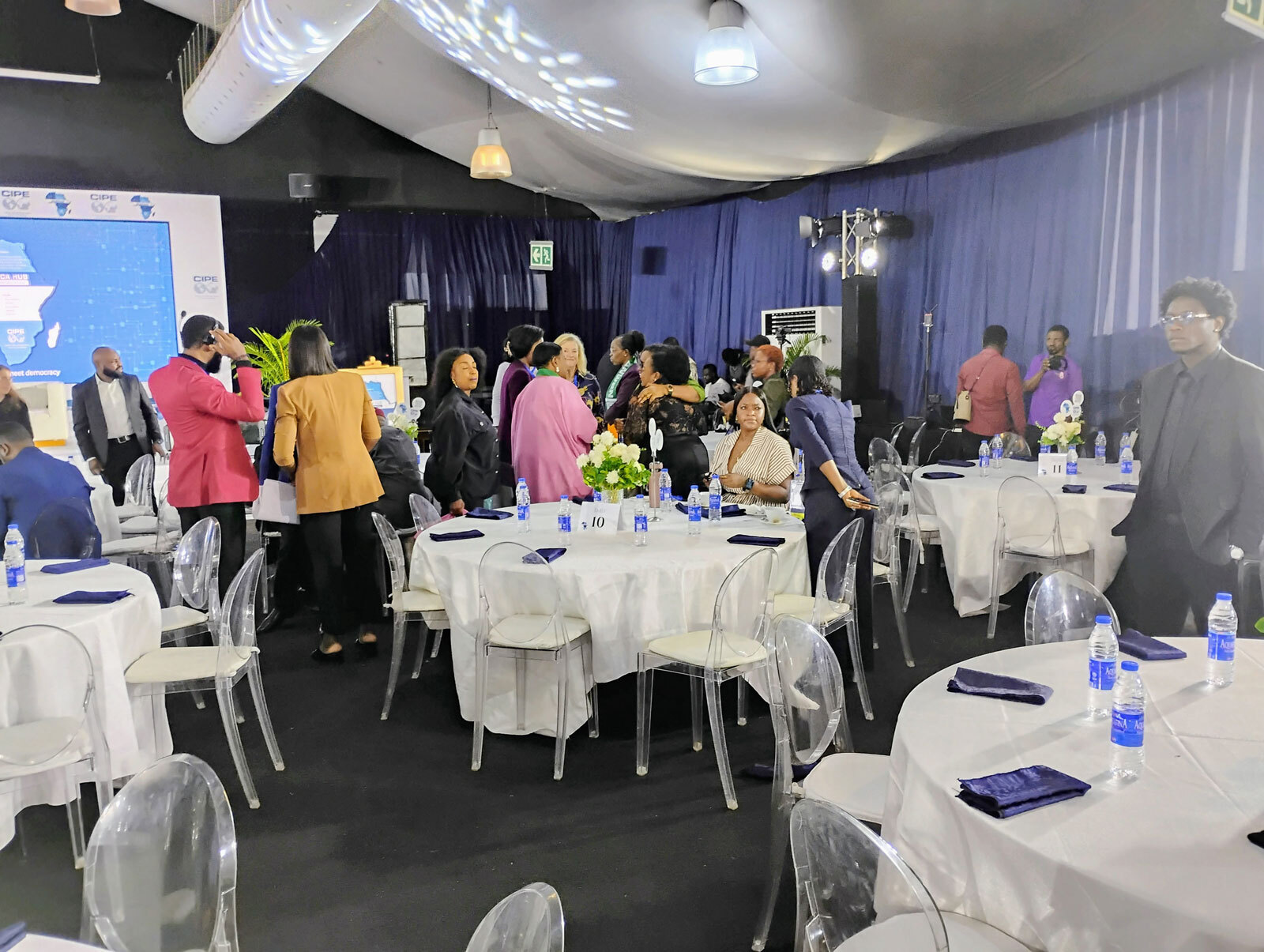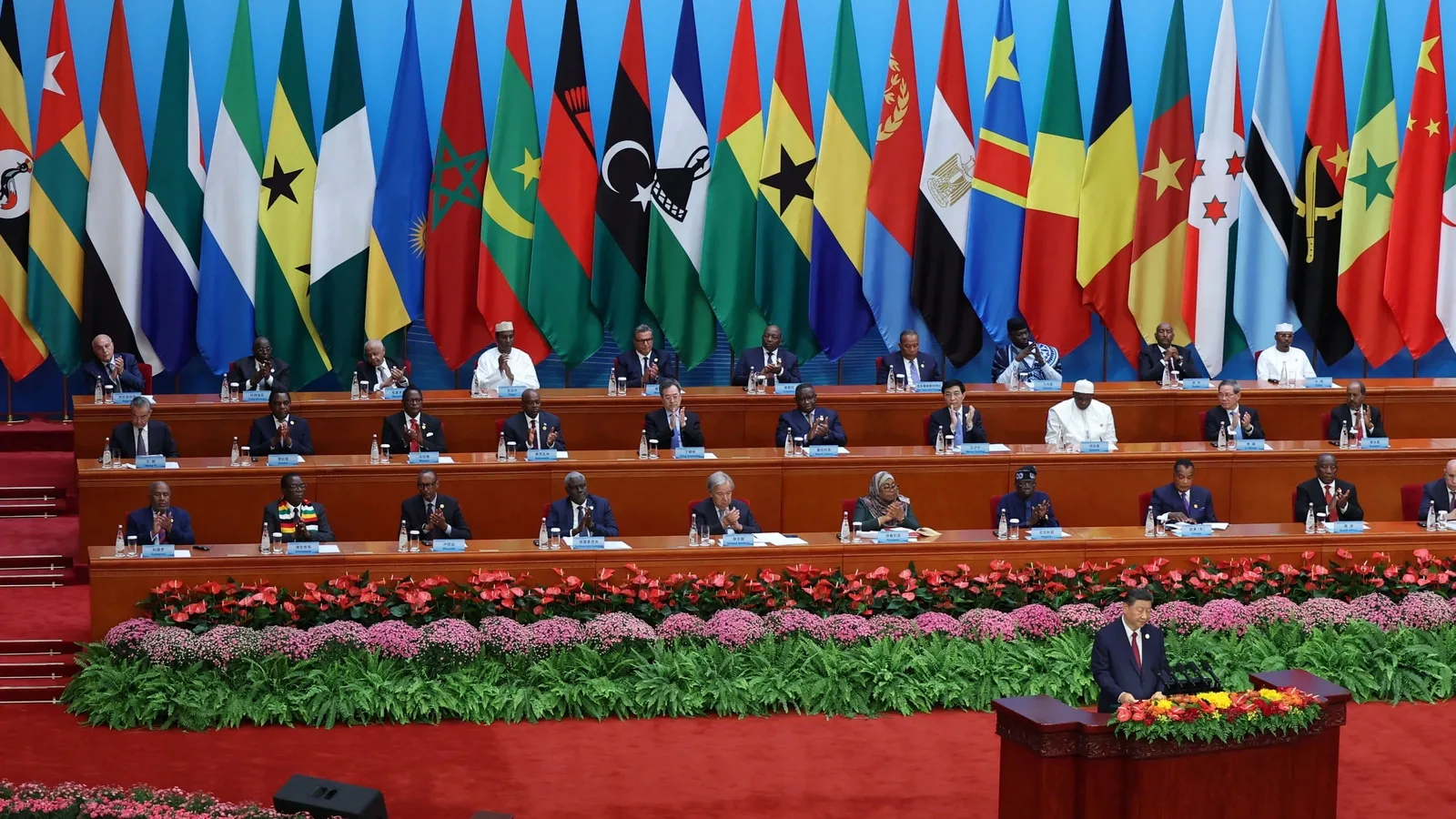At the launch of the Centre for International Enterprise (CIPE) Africa Hub in Lagos, the U.S. Consul-General hailed the milestone as proof that strategic partnership, driven by private sector-led reform, transparent trade rules, and resilient local institutions, which can propel sustainable development and democracy in Nigeria and beyond.
The event underscored the deep economic ties between the U.S. and Nigeria, a relationship built on trade, investment, and a spirit of shared entrepreneurship that now fuels both nations’ growth. With over $13 billion in annual bilateral trade, 20,000 Nigerian students studying across the U.S., and a rapidly expanding digital economy, both governments vowed to expand collaboration across infrastructure, agriculture, and innovation.
A New Dawn for African-Led Growth
CIPE’s Executive Director, Andrew Wilson, set the tone when he noted, “Nigeria stands at the crossroads of promise and innovation.” As the world questions old models of commerce and governance, CIPE and its U.S. partners made clear that Africa’s future depends on strengthening democracy through locally driven private sector action.
The new CIPE Africa Hub was positioned as a symbol of this new approach, one that champions homegrown solutions above imposed mandates.
Building Resilience in Business and Democracy
Both the US Counsel General and CIPE Executive Director acknowledged today’s global shocks, such as volatile markets, contested globalisation, and rising uncertainty.
However, the ED CIPE’s approach focuses on empowering more than 530 African business chambers and associations to build capacity, advance technical freedoms, advocate policy change, and ensure markets work for communities. Examples from Nigeria to Zimbabwe, Kenya, and Ethiopia illustrated how local chambers and coalitions reduced bureaucracy, formalised trading rights, and made budget advocacy real, driving measurable shifts in trust, transparency, and opportunity.
Expanding Opportunity and Ownership
Messages by both speakers, called for an “economic triple play”: advance economic freedoms, expand opportunity, and boost resilience. Noting that CIPE’s model ties reforms to credible institutions and local ownership, with professionalised leadership, continuous training, and practical advocacy replacing donor dependency.
Across West and East Africa, programs like the Association of Chamber Excellence and Ethics First are raising standards and spreading proven reforms. Local stewardship and cross-sector learning, are the “roots that sustain long-term gains”, creating confident business communities and a fairer marketplace.
Scaling What Works, Deepening Collaboration
The messages highlighted major focus areas that would drive the enabling environment for true stakeholder engagements and increased economic growth across the continent. Major highlights include, but are not limited to, the following.
- Double down on cross-sector dialogue, ensuring evidence-based policy and structured engagement that would foster solutions that resonate for business, government, and civil society alike.
- Investment in the professional growth of chamber and coalition leaders to drive advocacy and sustainable innovation across regions.
- Systematic approach to best-practice transfer, from digital tax reform in Nigeria to anti-corruption platforms and chambers’ academy models, continent-wide.
- Anchoring every reform in the local context, with CIPE and partners supporting learning, connections, and tailored resource flows.
- Use the new hub to amplify and adapt what works, empowering local actors and linking their successes to pan-African and global value chains.
According to the U.S. Consul-General’s remarks, the CIPE Africa Hub launch makes the stakes very clear - inclusive prosperity comes when government, business, and civil society together forge rules, nurture open markets, and professionalise institutions for the long haul.
True resilience will be measured not in headline deals, but in durable collaborations, grassroots leadership, and local solutions that echo across Africa’s next generation.

